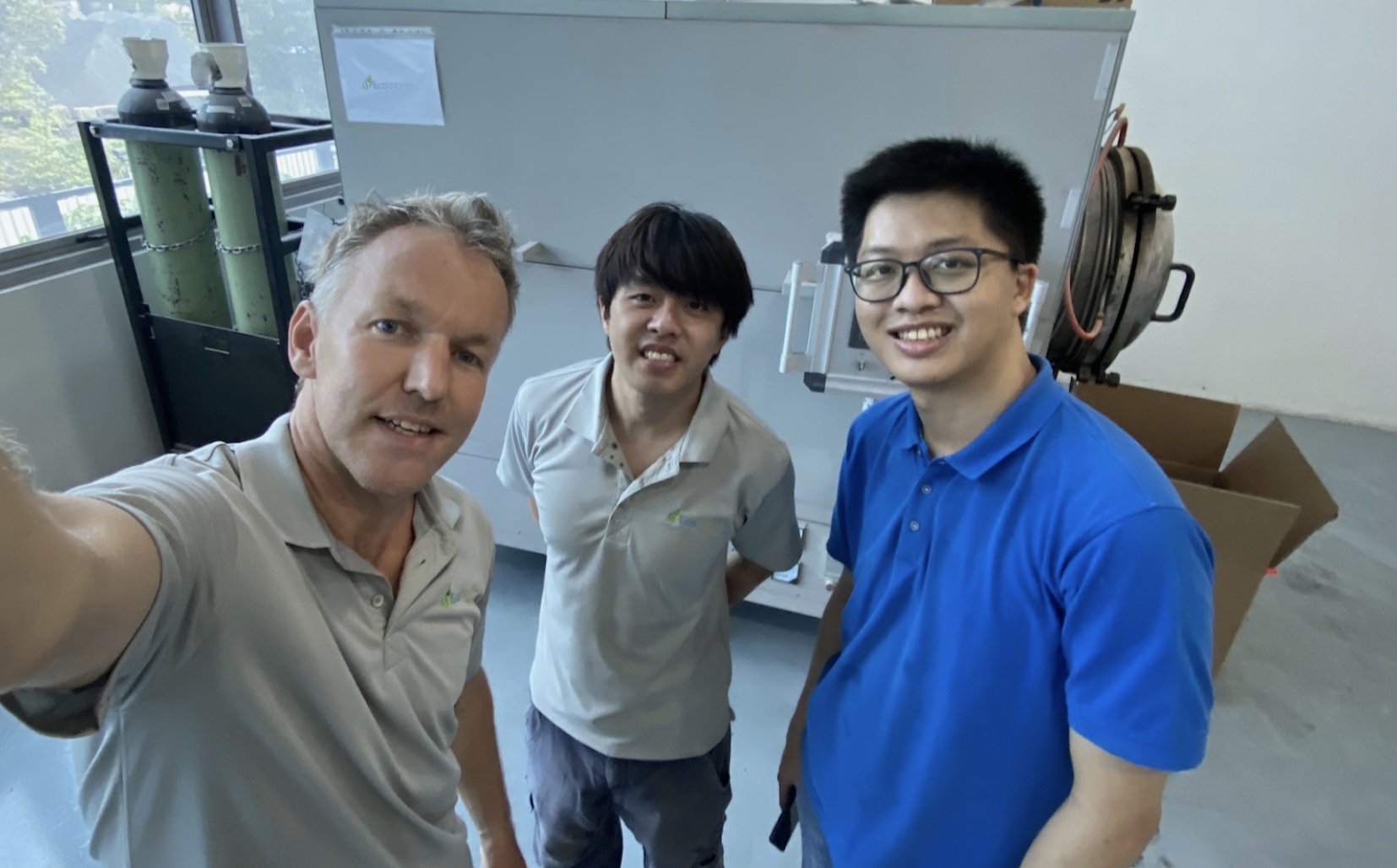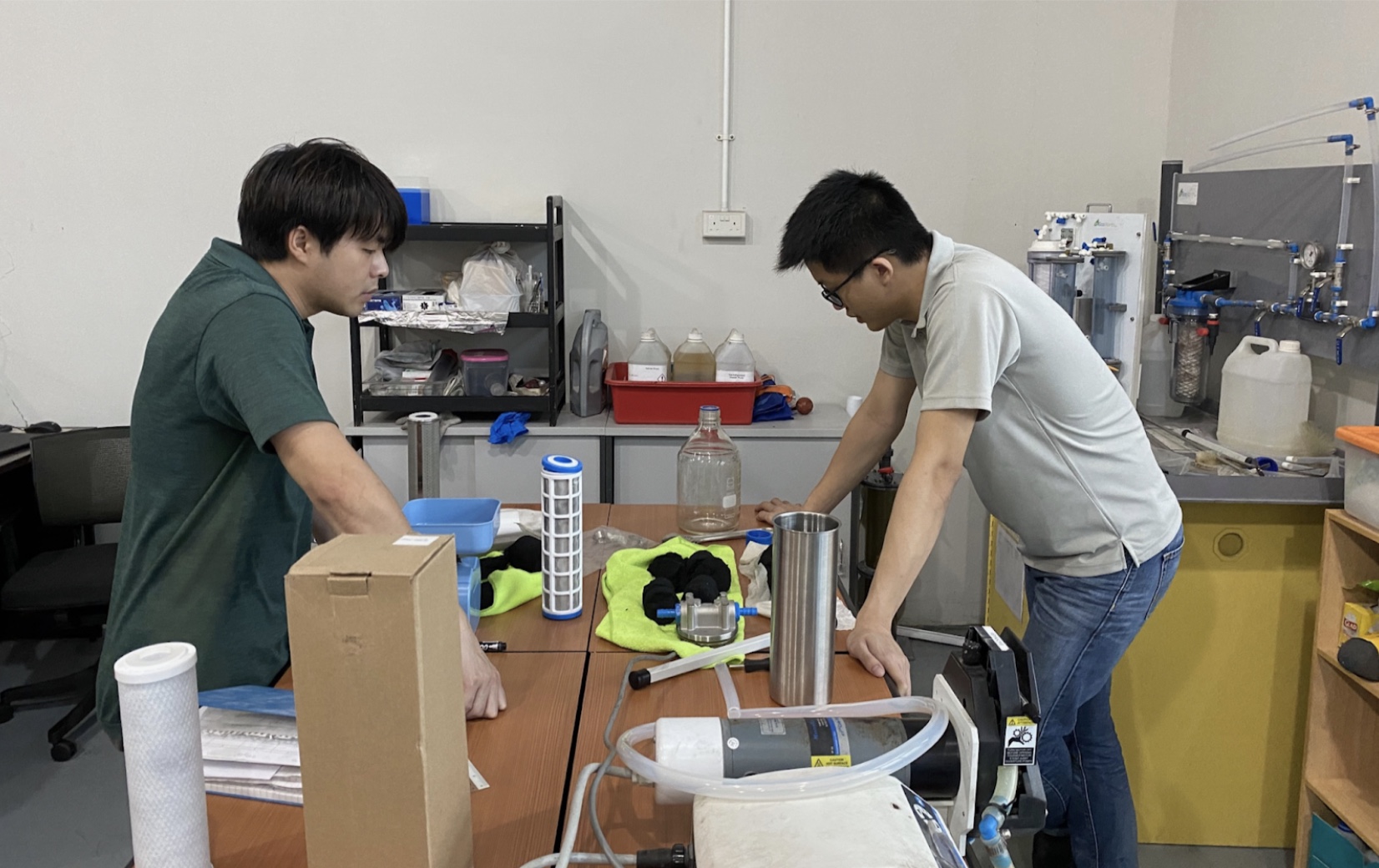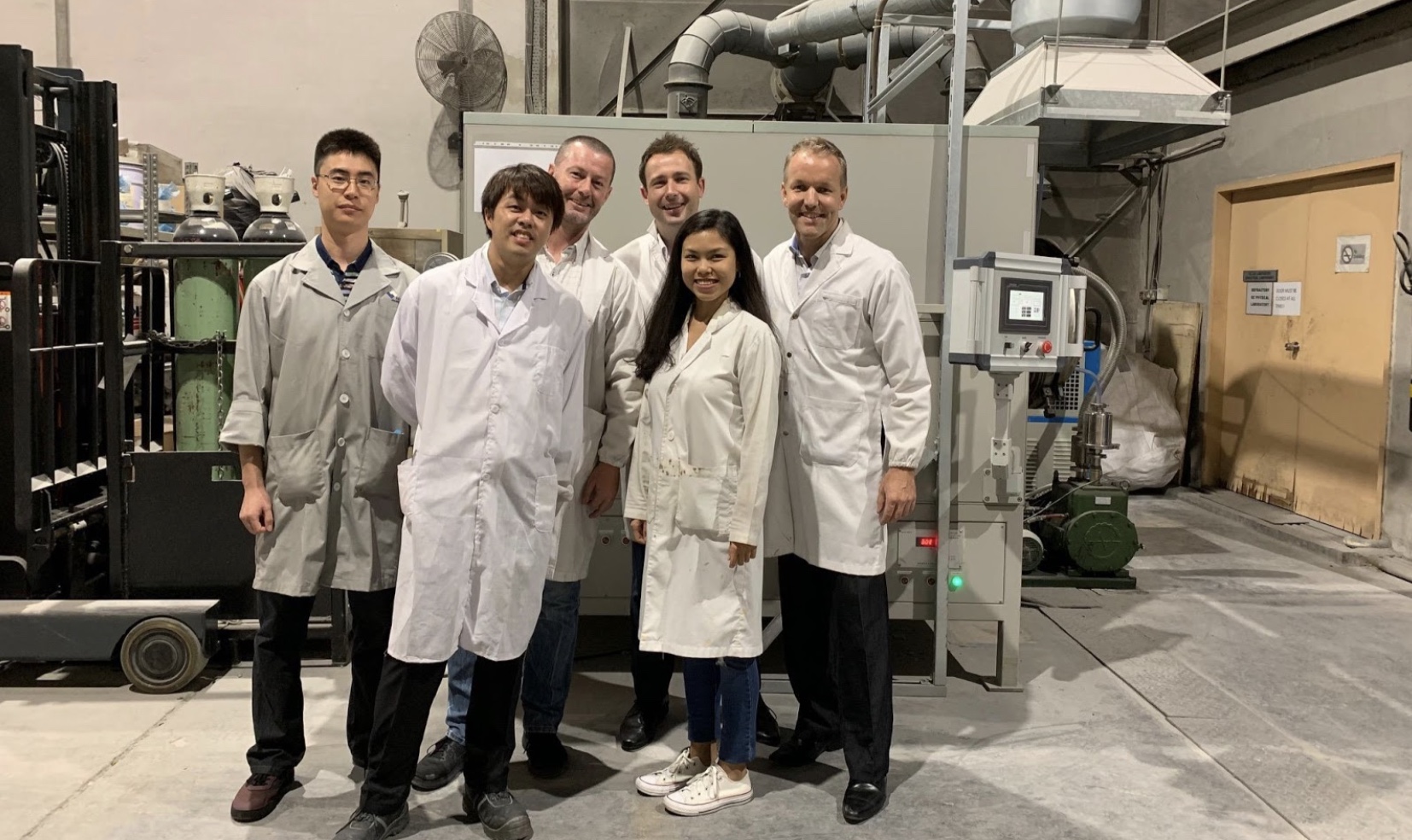Editor’s note: This interview is part of a Q&A series with winners of the ORIGIN Innovation Awards 2020. EcoWorth Tech is a winner in the category Best Sustainable Solution.

Carbon footprint is one of the biggest concerns when it comes to sustainability. However, understandably, not all businesses are able or capable in adequately reducing their carbon footprint (hence the popularity of carbon credits. In a TechNode Global Q&A with Francis Poon, Technical Sales Engineer at EcoWorth Tech Pte. Ltd., we learn how businesses and governments are pushing to reduce carbon emission and waste production in a bid for sustainability in business operations. There are challenges in cost-competitiveness, impact, and traction, however.
A winner at last year’s ORIGIN Innovation Awards – Best Sustainable Solution, EcoWorth Tech is a waste-to-worth solutions partner specialized in transforming waste materials into reusable products while delivering social and environmental benefits. Based in Singapore, it commercializes an innovative, sustainable technology called ‘Carbon Fibre Aerogel’, developed at Nanyang Technological University to treat wastewater.
Here are some highlights of the Q&A.
What are the trends driving the need for more sustainable business practices?
Globally, we are using more non-renewable resources and generating more waste, and we are now feeling the adverse environmental impacts: global warming and increasing natural disasters. With an increase in environmental awareness, the world is pushing to reduce carbon emission and waste reduction through new solutions and technologies that promote sustainable businesses.
What are three key challenges that innovators need to overcome in addressing regional and global sustainability concerns?
Like other innovators, our team also faces various challenges in providing our innovative solutions to address sustainability concerns:
Cost competitiveness
The cost of developing and improving on the new technology is significantly expensive at early stages, and a lot of effort is needed to bring down the cost of production, making our solution cost-competitive and attractive to end-users.
Environmental Impact
Our technology is competitively advantageous with negative carbon footprint production. Many new innovations are attractive but they are not sustainable due to high carbon emissions and high waste generation. Not only can we upcycle waste into worth, we also transform a linear economy into a circular economy, and ensure self-sustainability.
Traction and interest
It is important for market players to be open to innovation and accepting new ideas. Without traction and interest from the market, any impactful innovation will not be sustainable. Also, with traction and support, our team manages to further improve on our technology and to provide significantly higher benefits to our supporters in the market.

Are there any sustainability challenges unique to Asia? Can these be addressed through global solutions, or will we need localized efforts?
Since 2017, China has imposed Operation National Sword, and Southeast Asia has since become the favorite destination for waste from developed countries. Exporting contaminated waste to countries such as Thailand and Malaysia is a cheaper solution compared to domestic disposal or recycling. Even though these Southeast Asian countries start to send some of the waste back to the export origin, these challenges will still exist, the hazardous waste will just be relocating to different countries around the world. A global solution is needed to change our consumption patterns, reducing waste generation and the demand for waste export.
In addition, haze is a prominent problem in Southeast Asia, where it is prominent between July and October. Haze is generated through illegal slash-and-burn practice in Indonesia, the cheapest and most profitable way to turn used agricultural land for new plantations. Even though this practice occurs only in Indonesia, the neighboring countries, such as Brunei, Malaysia, and Singapore are also affected by these illegal activities. These residents’ health is being compromised, and some even develop chronic illness. Localized efforts are really needed to prevent further problems associated with haze generation, and regional efforts are also needed to discourage such acts to ensure clean air around the region.
What is EcoWorth Tech’s contribution toward sustainability?
EcoWorth Tech aims to ensure sustainability through three main areas: eliminating linear economy practices, promoting zero-carbon production, and reducing global waste.
According to the World Bank, wood, cardboard, and paper waste constitute about a fifth of global waste. This is expected to increase with the current pandemic, where global logistics increase. We have the capability to turn these wastes into our innovative solution–Carbon Fibre Aerogel (CFA), an environmentally friendly material capable of oil and organics removal. This would significantly decrease paper and plant biomass that goes for incineration and landfill. In addition, this is a carbon-negative process, by-products produced during production can be fully utilized for various purposes, such as carbon nanotube production and biofuel.
CFA produced from biomass is tested and proven to remove oil and organics in wastewater treatment. Certain organics, such as palm oil, are effectively separated from wastewater and sold to the secondary market, therefore reducing any wastage during production. End-of-life CFA can also be reused and upcycled into biochar soil for plants, closing the loop in a circular economy and providing a self-sustainable economy loop.
How do you define impact, from the perspective of sustainability?
The impact of each solution/technology should be evaluated based on how they provide benefits over long periods of time. An impactful and sustainable solution should be carbon neutral/negative, promoting a circular economy with self-reliance on materials and manufacturing processes.
Do you think that sustainability issues should necessarily be addressed by drastic or disruptive changes, or can we do incremental solutions that will contribute to an overall improvement?
Given the current environmental impact brought to us, we believe a mixture of both drastic change and incremental solutions would provide more effective solutions in the long run.
Current sustainability efforts have brought more negative impact as opposed to positive, a drastic change must be acted upon and imposed to stop any further unsustainable act that creates more environmental problems.
In the long run, after having successfully prevented further environmental damage, a stricter incremental change can be put in place to ensure a more sustainable solution, allowing the environment to ‘heal’ itself.
Some technological advancements have had a negative impact on sustainability, e.g., power consumption by certain blockchain technologies. How can we balance out the negative effects of increased consumption with the benefits of innovation?
With advanced technology, there are currently various innovations that promote more benefits that outweigh the negative impact on sustainability. For example, we are currently looking for various methods that produce green electricity, such as using energy from waste incineration to produce electricity, converting solar energy and wind into electricity. These technologies can in turn be used for some activities with a negative impact on sustainability. I believe that with an increase in reliance on renewables, the benefits of sustainable innovation would outweigh the current negative impacts created from the innovative technology.


